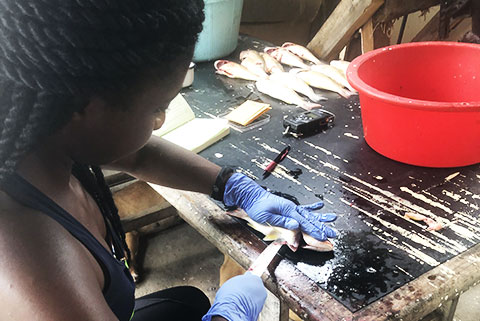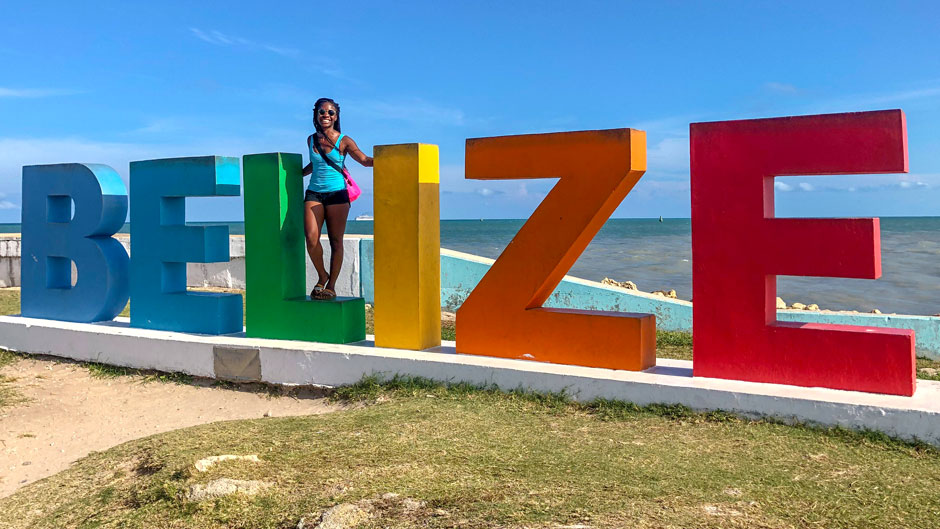For two weeks in late May, I collected otoliths and tissue samples from lane snapper populations in Belize.
Lane snapper are a warm water species found in the western Atlantic Ocean from North Carolina, throughout the Gulf of Mexico and south to Brazil. In Belize, artisanal fisheries depend heavily on lane snapper as a main source of income. Unfortunately, very little is known about the species and researchers lack the data required to determine if their populations are being fished sustainably.
Working with the Wildlife Conservation Society in Belize City, we collected samples from two sites. My personal favorite was the Glover’s Reef Research Station, located on an atoll off the southern coast of Belize. In the mornings, we collected samples from local anglers and in the evening, we processed the fish.
The second site was located in the heart of Belize City. Here, I worked with the family members of a Wildlife Conservation Society colleague. During my time there, the Alamina family and I processed more than 300 fish. They accompanied me when collecting my samples and allowed me to process the fish in their backyard.

The lane snapper otoliths (i.e. ear bones) that were collected are calcium carbonate structures that contain rings, similar to tree rings that represent seasonal growth. In short, biologists estimate fish age by counting these rings. I also collected tissue samples, which will be used to examine genetic connectivity among populations. Connectivity is important because it determines if populations are self-sustaining or receiving larvae from elsewhere.
My study aims to collect data and estimate a growth curve for lane snapper populations in Belize. This will allow local managers to gain a better understanding of the life history, dispersal, and genetic variation among lane snapper. The findings can be used to make informed management decisions, such as regional size limits, which may be needed if growth varies regionally.
Adrianne Wilson is a doctoral candidate in the Rosenstiel School of Marine and Atmospheric Science. She is a rising third year Ph.D. student in marine biology and ecology, and spent two weeks in Belize as the recipient of a grant from the University of Miami Institute for Advanced Study of the Americas.

